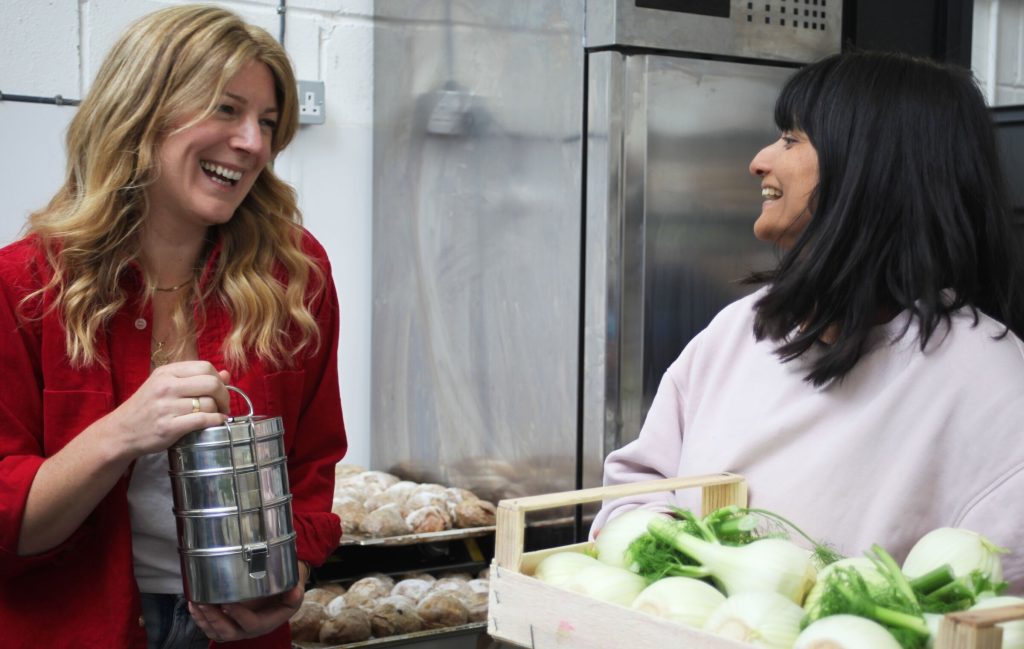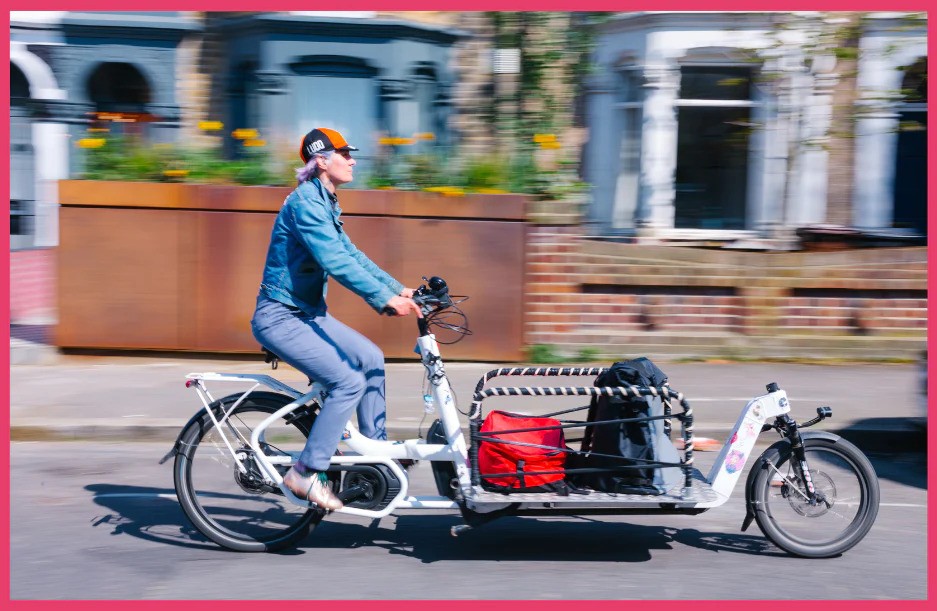(February 10, 2024) Dressed in a white outfit and traditional Gandhi topi, an army of about 5000 dabbawallas push through every nook and corner of Mumbai to satiate the hunger of over 200,000 Mumbaikars daily with home-cooked food for 125 years. This very lifeline of Mumbai inspired a Mumbaikar, who is now settled in London, to start DabbaDrop – London’s first plastic-free, waste-free and emissions-free takeaway. In just five years, co-founders Anshu Ahuja and Renee Williams have saved 2,03,370 plastic containers and prevented 2,500 kg of food waste from going into landfills through DabbaDrop.
“In the past few years, people have started ordering a lot, thanks to the arrival of food delivery apps. After having that food, we end up with a bin full of plastic. The packaging is very wasteful and greasy. You can’t recycle it. So, I wanted to find a better way to order in,” the Global Indian said in an interview.

Renee Williams and Anshu Ahuja
Zero wastage takeaway
Growing up in Mumbai with a Tamilian mother and a Punjabi father, food remained a big part of Anshu’s life. As a teenager whenever she stepped out to try some food, she would end up recreating the same in her kitchen upon her return. “This way I could continue to taste the flavours.”
However, after moving to London and working a high-pressure job as a TV producer, she would often end up ordering food. But the options for vegetarian food were very limited and the food always arrived in plastic containers. Keen to find a better way, she quit her 15-year-long stint in TV production to start Dabba Drop. It began with her reproducing her family’s recipes, packing them in reusable metal tiffin or dabbas, and delivering it by bike in the nearby areas of Hackney. She texted a handful of friends about the idea, and the first week saw six people ordering in, and later the number rose to 25. In just 18 months, DabbaDrop was feeding 300 people weekly across Hackney, Leyton and Walthamstow.

Eco-friendly delivery
One of her first messages landed in Renee William’s textbox, who was a restaurant event producer. Coming from New Zealand, she believes in nature and sustainability and instantly fell in love with the concept of DabbaDrop. “I loved the theatre of not knowing what was inside the dabba before I opened it, and the wholesome food and sustainability element really ticked all the boxes for me,” Renee said in an interview. In no time, the conversations between the two turned into how to make this idea bigger and better.
Offering healthy South Asian cuisine
They work on a flexible subscription-based system that allows people to sign up weekly or fortnightly, with a set menu for every week. They curate the mains, and customers can add the sides. “We cook all our dals, curries and subzi’s from scratch in our commercial kitchen, using 100% natural ingredients – vegetables, lentils, legumes, healthy fats, whole grains, nuts, and seeds. Our handmade spice mixes are made fresh every week and everything is made in small batches,” reads their website. With DabbaDrop, Anshu and Renee wanted to introduce Londoners to Indian flavours and textures. “What we serve is not something that is easily available in a traditional Indian restaurant.”
“Our meals are vegan and South Asian. We want to follow the journey of the curry. This way, we are uncovering the history of Indians as they emigrated across the world,” added Anshu, who avoids wastage, thanks to pre-orders. The chefs cook for the exact amount of people who have ordered, as one dabba can easily serve two people.
The dabbas that serve meals from Japan, Vietnam, Sri Lanka, Kerala, Delhi, and Hyderabad are then mounted onto bicycles, e-bikes, and other emission-free vehicles for delivery in Zones 1-3 of London And the empty dabbas can be picked up during the next delivery. “We use everything that is reusable. We are constantly trying to improve our packaging. We want to leave a better planet for our kids,” added Anshu.
Dabbadrop has more than 2,000 subscribers and delivers food all over East London. They want to grow bigger in the future. They got £500,000 in their first funding round, which made the company worth £2.7 million. “We want to change the way London does take away,” said Anshu.





